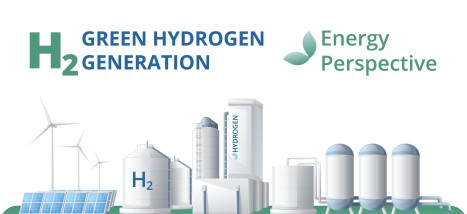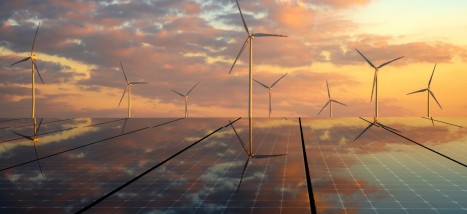-
23 October 2023

Climatic effects on sustainable energy
Solar and wind energy play a major role in the European energy supply now and in the future. The generation is dependent on weather conditions which increases the impact of meteorological fluctuations. European energy distribution can compensate for shortages.
Climatic data of solar radiation and wind speed can be used to simulate capacity factors for solar and wind energy. Using renewable energy production data, this data is converted into time series of generated electrical power. Very low energy production events, i.e. shortages, can be identified and are related to large scale weather events in Europe.
In Germany, on average, about twice as much electrical energy is generated from wind than from solar radiation; In addition, there is a clear annual cycle with an equal share of generated energy in the summer and a wind/solar share of 70/30% in the winter. There is an unequivocal dependence of wind and solar energy production on weather conditions. Deficiency events in Germany and also the Netherlands mainly occur in winter, often associated with a high pressure area over Central Europe. However, during this weather regime, the potential for renewable energy in North and South East Europe is above average, which could compensate for possible shortages in other European areas.
The research into possible balance effects by other European countries during a shortage in Central and Western European countries is relevant for a comprehensive European connected electricity grid. European countries that have great potential to compensate for shortages in Germany, for example, are the Scandinavian countries, Slovenia and Croatia, where the wind present there can lead to high production. The European energy system has great potential to compensate for shortages in some EU countries with the help of other European countries. Combining solar and wind energy with other renewable energy sources, including hydropower, can further reduce the negative effects of shortages.
However, the increasing need for renewable energy, including in the transport and heating sector, must be taken into account and therefore further research into renewable energy and also storage research is needed. In addition, an increase in the share of renewable energy is necessary. Nevertheless, smart, direct distribution of available renewable energy across Europe could also provide a win-win situation.
Source: sciencedirect.com
-
25 March 2025
 Green hydrogen can contribute effectively to emissions reductionBy: Evertjan van Roekel
Green hydrogen can contribute effectively to emissions reductionBy: Evertjan van RoekelGreen hydrogen often, but certainly not always, leads to CO2 gains. This is evident from research in Nature Energy by Kiane de Kleijne of Radboud University and Eindhoven University of Technology. 'If you calculate the entire life cycle of green hydrogen production and transport, the CO2 gain can be disappointing. But if green hydrogen is produced from very clean electricity and in the region, it can really contribute to emission reductions.'
[Read more...] -
18 February 2025
 Renewable energy investment creates great potentialBy: Evertjan van Roekel
Renewable energy investment creates great potentialBy: Evertjan van RoekelAn investment in renewable energy offers an excellent financial return and a way to put your money to work for people and the environment. Sustainable energy investments also play a crucial role in tackling the global climate problem.
[Read more...]